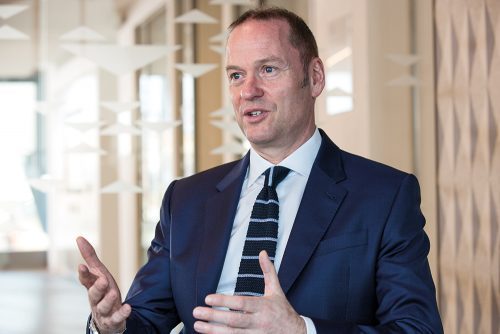Construction group’s recovery outperforms expectations

Construction and property group Henry Boot has delivered better-than-expected results after downgrading its expectations due to the coronavirus pandemic.
The Sheffield-headquartered business generated pre-tax profits of £7.2m in the half-year to June. This was still 70% lower than last year but “slightly ahead” of its revised expectations.
Previously Henry Boot had sought to reassure investors by emphasising that it is “a long-term business” working in markets, such as housing, logistics and public sector-led development, that it believes are sustainable.
Tim Roberts, who became chief executive on January 1, believes the group’s hard work has “helped keep the business viable”.
He said: “The first half of the year has proved to be very challenging for all of us, but with an agile recovery plan and a robust balance sheet Henry Boot remains in a strong position.”
Its net asset value (NAV) remained “robust”, and at 232p was only 1p lower than a year ago.
The group has felt able to issue an interim dividend of 2.2p per share, which is 40% lower than 2019 but healthy in a period when many listed companies have suspended or cancelled dividends altogether.
The group includes the Henry Boot-branded construction and development businesses alongside Hallam Land Management, Stonebridge Homes and Banner Plant.
Roberts added: “While CV-19 has affected our interim results and led us to make difficult decisions to reshape and protect the business, we have seen clear improvements in our operations.
“As this momentum builds, we have been quick to secure selective long-term opportunities and make progress in our key markets – residential, industrial and urban development.”
Its Hallam business increased its land portfolio to more than 15,400 acres and sold 2,000 plots across nine sites.
Henry Boot’s development businesses have a “strong £1.4bn pipeline”, mostly focused on industrial and logistics assets, while its residential housing operations are “on track to hit full-year targets”.
The group’s shares traded at around 330p in February before the market slump going into lockdown pulled that down to 180p in mid-March. It recovered half of the fall in the weeks that followed before plateauing, and closed on Friday at 255p.








